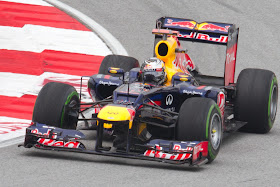There is an F1 race meeting taking place next weekend, and yet I'm not thinking about who might be quick there, who the likely winners are and what it would all mean for the championship. My thoughts are elsewhere. Frankly, I'll just be mightily relieved if, come the Monday following the race, the whole thing has passed off without something unpleasant or tragic happening in or around it.
I can barely think of another F1 race I've anticipated in such a way. Even the Monaco Grand Prix of 1994, which followed on from the blackest of black weekends at Imola that year, isn't quite on the same level. My trepidation then was for safety of the drivers in the course of their driving, and they at least get involved the sport knowing such dangers to themsleves are, at the broadest level, inescapable.
This time it's different. The apparent risk is on all of the people involved in the sport - team members, media, track workers and others - as well as some not even involved in F1 directly, who could well be being placed in potential danger.
 |
| Credit: Emily Faulk / CC |
The FIA confirmed yesterday that the scheduled Bahrain Grand Prix will indeed take place next weekend, and that they're satisfied with the security arrangements in place. This is despite the continuing regular reports of protests and civil unrest in Bahrain, as well as allegations of brutal repression of it, and the resultant wider pressure to cancel the event.
I make no claim to be an expert on what exactly is happening in Bahrain, and given we live in an age of social media and the like we're being subjected to a barrage of claim and counter claim from both 'sides' of the debate which - without wishing to judge or dismiss collectively - is next to impossible to judge the veracity of in many cases.
Also, for the purposes of forming my view I'm parking whatever moral misgivings I might have about the Bahraini regime and its conduct (even though that many of the wider public perceive that by holding the race F1 is siding with repression for the sake of chasing the dollar, which isn't good). Indeed, F1 is not in a strong position to make moral judgments about the country. For one thing, it would be hypocritical in the extreme to do so. Even a cursory glance at an F1 calendar will tell you that Bahrain is not the only country visited, either now or in the past, about which questions could be raised, and establishing where to 'draw lines' is never easy (though F1 seems a lot more reluctant to draw a line at all than are most entities).



.jpg)





